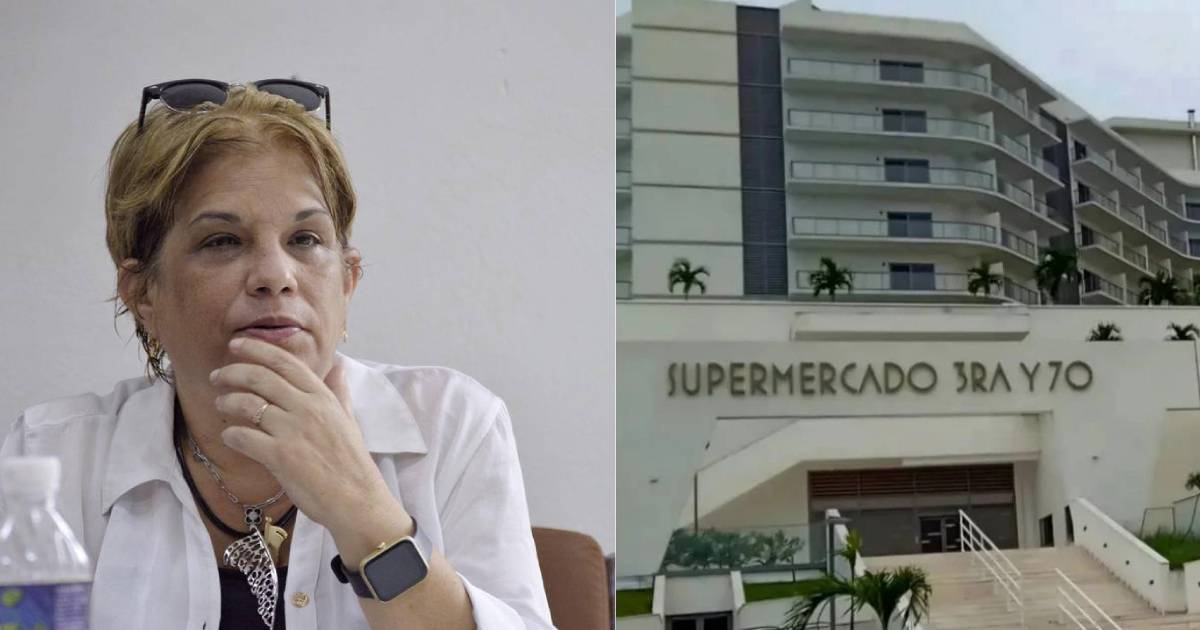In a surprising twist, Ana Teresa Badia, a journalist known for her alignment with Cuba's official media, has sparked a lively discussion on social media. Her criticism centers on the newly opened dollar-only supermarket located beneath the Gran Muthu Habana hotel in Havana. In a candid Facebook post, Badia expressed her dissatisfaction with this retail model, questioning why the supermarket only accepts cash in dollars or international credit cards, while excluding the commonly used Moneda Libremente Convertible (MLC) cards.
As a professor at the Faculty of Communication at the University of Havana, Badia didn't mince words: “Why is it possible to use the so-called Classic cards but not MLC cards? Has the MLC turned into some kind of magic dust?” She drew parallels to past situations, recalling how Cuban medical collaborators, her mother included, were forced to convert their MLC earnings into Cuban pesos or leave them in unpaid deposits.
Badia expressed skepticism about how the dollar income from this supermarket might benefit other stores. She argued that the challenges facing commerce in Cuba aren't solely about resources but also derive from a lack of initiative and organization. Emphasizing the need for transparent communication, she stated, “When information is lacking, rumors thrive. No experimental project should proceed without a clear explanation.” She also criticized the customer service in these establishments, describing it as inattentive and lacking empathy.
With a call for introspection, Badia concluded her post with a stark message: "Much explanations are needed." She urged authorities and retail chains to utilize their digital platforms to properly inform the public, aiming to prevent speculation and social discontent.
The Context of Economic Measures
The opening of this supermarket is part of a series of measures by the Cuban government to attract foreign currency amidst the country's ongoing economic crisis. Since 2019, stores operating in foreign currencies have emerged, initially selling appliances and later expanding to include food and essential goods. The exclusion of MLC cards at the Gran Muthu Habana supermarket has caught many by surprise, as these cards have become the primary payment method in foreign currency stores.
These stores have been a focal point of criticism from the public, who see them as a source of economic inequality. Many Cubans lack direct access to foreign currency and rely on remittances or the informal market to shop there. Furthermore, these measures have not resolved the issue of shortages in stores operating in the national currency.
Reflecting the public sentiment, comedian Ulises Toirac, known for his satirical take on Cuban life, commented on social media: "We've got transport in USD (rental cars), appliances in USD (stores by 'card'), and now food and hygiene products in USD... Wonderful! The day is near when they’ll pay us in USD!"
Understanding the Economic Impact of Dollar-Only Stores in Cuba
Why are dollar-only supermarkets controversial in Cuba?
Dollar-only supermarkets are controversial because they exacerbate economic inequality. Many Cubans do not have direct access to foreign currency, making it difficult for them to purchase essential goods in these stores.
What payment methods are accepted in the new supermarket?
The new supermarket accepts payments in cash dollars and international credit cards, but does not accept Moneda Libremente Convertible (MLC) cards, which are commonly used in other foreign currency stores in Cuba.
What has been the public reaction to the exclusion of MLC cards?
The exclusion of MLC cards has surprised and frustrated many, as these cards have been the standard payment method in other foreign currency stores. The decision has led to public outcry and concerns over transparency and fairness.
